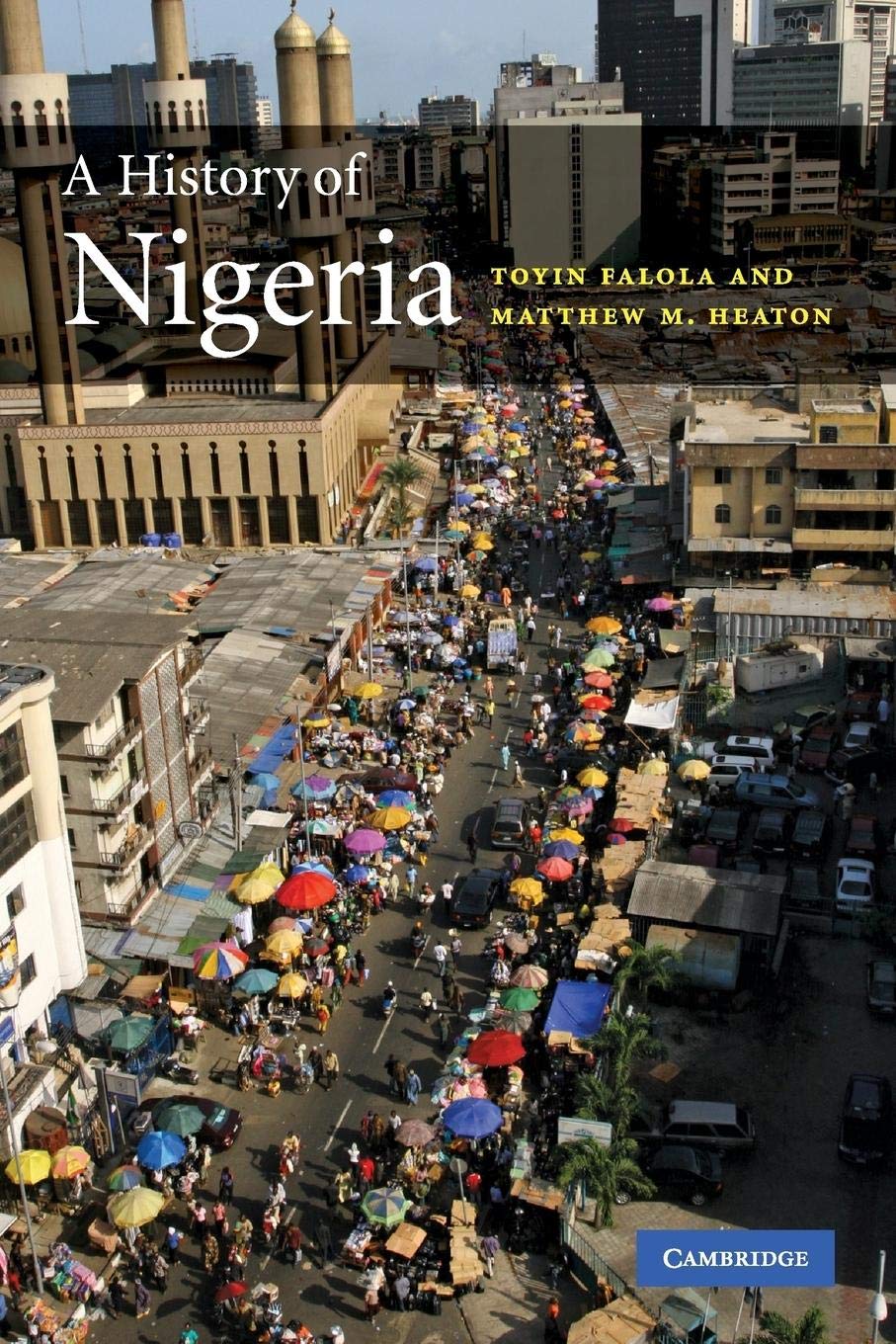

A History of Nigeria 1st Edition by Toyin Falola (Author), Matthew M. Heaton (Author)
Poetic Blogger@poeticblogger
1 year ago
A History of Nigeria by Toyin Falola and Matthew M. Heaton is a comprehensive and authoritative account of Nigeria's history, offering readers a deep dive into the political, social, and cultural evolution of the country from its pre-colonial era to modern times. The book presents an in-depth exploration of Nigeria’s complex history, examining the dynamics that have shaped the nation over centuries, while providing critical insights into how its past continues to influence its present and future.
The authors begin by detailing Nigeria’s rich and diverse pre-colonial societies, emphasizing the political and economic structures of early empires such as the Oyo, Benin, and Sokoto Caliphates. They explore the region’s extensive involvement in trans-Saharan trade and its interaction with European powers prior to colonization, setting the stage for a broader understanding of Nigeria's role in the global historical context.
Falola and Heaton then move on to the colonial period, documenting the British conquest of Nigeria and the imposition of foreign rule. The authors highlight the complex interactions between colonial authorities and Nigerian elites, as well as the significant social and economic changes that colonialism brought about, including the rise of nationalism and resistance movements that ultimately led to Nigeria’s independence in 1960.
Post-independence challenges are also thoroughly examined, including the political instability, ethnic tensions, and civil war that followed Nigeria’s freedom from colonial rule. The book provides a detailed analysis of the Nigerian Civil War (1967-1970) and its long-term effects on the country’s politics, economy, and social fabric. The authors also explore the subsequent periods of military rule, the return to democracy, and the struggles Nigeria has faced in building a stable and prosperous nation.
In addition to political history, A History of Nigeria delves into the country’s cultural and economic development, highlighting Nigeria’s contributions to literature, art, and popular culture, as well as its position as a major economic power in Africa.
What sets this book apart is its balanced and nuanced approach, offering readers a well-rounded understanding of Nigeria’s history. Falola and Heaton make a complex history accessible, providing clear and engaging narratives that highlight both the challenges and triumphs Nigeria has experienced over time.
Whether you are a student, scholar, or simply someone interested in understanding the rich history of Africa’s most populous country, A History of Nigeria is an essential read. It not only provides a detailed historical account but also offers insights into Nigeria’s ongoing journey as a nation striving for unity, development, and a more stable future.
